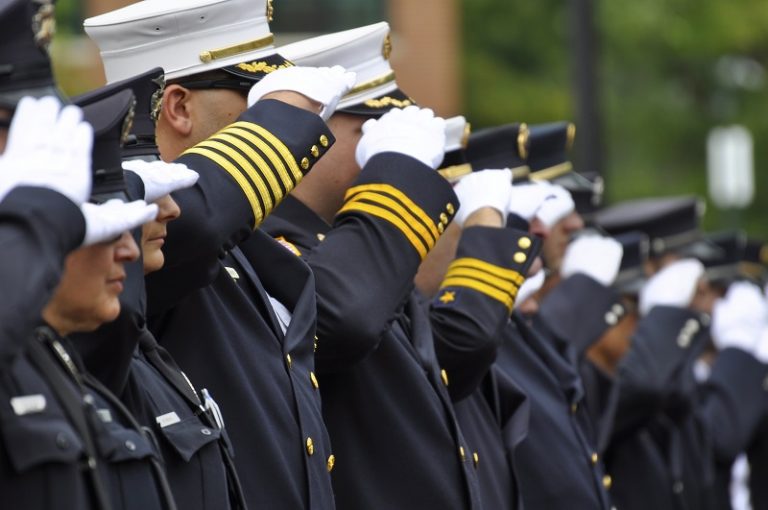Careers in criminal justice offer a wide range of opportunities to make a meaningful impact on society, from roles in law enforcement and legal services to rehabilitation and advocacy. Professionals in this field are vital to maintaining public safety, upholding the law, and ensuring justice for all. With a focus on ethics, critical thinking, and communication skills, individuals pursuing criminal justice careers can drive positive change while navigating the complexities of the legal system. Whether working on the front lines or behind the scenes, these roles are not only rewarding but also essential to fostering a fair and just society.
For those interested in protecting and serving their communities, a career in criminal justice can be an ideal path. Opportunities in this field are available in diverse settings, from bustling metropolitan areas to serene national parks, offering the chance to serve in various environments across the nation. This dynamic field provides both the challenge and the fulfillment of contributing to the safety and well-being of society at large.
Exploring Your Options
There are many career options for you to explore within the criminal justice field. Explore the Career Paths section of CareerLink to get started, or reference the following options as a sampling of the varying directions you can consider. Keep in mind the path you choose may require additional education, experience, training, and/or other qualifications beyond obtaining a criminal justice degree.
- Border Patrol Agent
- Background Investigator
- Correctional Officer
- Criminal Research Analyst
- Environmental Officer
- Emergency Services Dispatcher
- Federal Agent
- Fraud Investigation Analyst
- Forensic Science Technician
- Immigration & Customs Inspector
- Loss Prevention Manager
- Military Officer
- Park Ranger
- Police Records Officer
- Police Patrol Officer
- Private Detective or Investigator
- Public Safety Officer
- Probation Officer
- Sheriff or Deputy Sheriff
- State Police
- Threat Analyst
- Transit and Railroad Police
Your ideal career path may or may not appear in the list above; continue exploring career options until you find a path that aligns with your individual interests and professional goals. Make it a priority to learn as much as possible about your desired career path. The more you know about your target job, the better you can plan and prepare yourself for success.
Ever wonder what it would be like to work as a patrol officer? In the following Candid Career video, watch and listen as one law enforcement professional shares his experience:
You can watch the full recorded interview (and explore many others) by accessing Candid Career through our unique university link.
If you are interested in witnessing a day-in-the-life of a patrol officer first-hand, consider completing a ride along with your local law enforcement agency. Contact your law enforcement office to see if they offer a ride along program and ask about the requirements to participate.
According to the U.S. Department of Labor’s Occupational Outlook Handbook (2023), a Probation Officer works with and monitors law offenders and provides social services to assist in their rehabilitation. Probation officers can specialize in different areas, such as adult probation and juvenile probation, and typically make frequent visits with the probationer to ensure they are not a threat to the community.
While each state, county, or agency has different requirements for becoming a probation officer, most require a bachelor’s degree, a minimum age requirement of 21, and the ability to pass various background and drug testing. In addition, training for probation officers varies by agency, and is typically sponsored by the local, state, or federal government. Some agencies require candidates to pass a certification test and/or work as a trainee prior to obtaining a permanent position.
For more information on how to become a probation officer, reach out to your local and state correctional facilities to inquire about your area’s employment requirements. The Occupational Outlook Handbook’s “Probation Officers and Correctional Treatment Specialists” can also provide general guidance and resources for conducting research.
Citation: Bureau of Labor Statistics, U.S. Department of Labor, Occupational Outlook Handbook, Probation Officers and Correctional Treatment Specialists, on the Internet at https://www.bls.gov/ooh/community-and-social-service/probation-officers-and-correctional-treatment-specialists.htm (updated February 24, 2025).
Planning for a Criminal Justice Career
Employers often gravitate toward hiring job candidates who possess relevant, real-word experiences that complement their education. If you have limited experience in the criminal justice field, below are a few ways you can gain relevant experience and pave your way to opportunity. To brainstorm additional ideas, schedule an appointment with your career coach.
Volunteering:
Volunteering allows you to serve your community while building new skills, experiences, and professional connections. Explore opportunities with local law enforcement agencies, judicial centers, criminal victim advocacy organizations, and public event facilities.
Military Service:
Many of the skills, values, and training instilled through the military align with civilian criminal justice careers, such as service above one’s self, quick decision-making skills, and specialized occupational training.
National and Community Service Programs:
Consider looking into service-based programs and opportunities through the Corporation for National & Community Service, such as:
- Justice AmeriCorps
- AmeriCorps VISTA Programs
Building meaningful connections with employers, mentors, and industry professionals can help you learn more about a position or specialty area as well as aid you during a future job search. Below are a few ways you can begin establishing new professional relationships in the criminal justice field:
APUS Virtual Career Fairs
Career Services offers industry-specific virtual career fairs throughout the year, providing students and alumni with the opportunity to connect with employers and recruiters. View our Events page to discover upcoming career fairs, employer information sessions and other events.
Past participating VCF employers have included*:
- Aramark Corrections Services
- Gavin De Becker & Associates
- Houston Police Department
- Intercon Security Systems, Inc.
- Loudoun County Sheriff’s Office
- Patriot Group International
- US Customs and Border Patrol
- Washington State Department of Corrections
*Please note that past employer participation does not guarantee future employer VCF participation. Please visit our Events page within CareerLink for upcoming events.
APUS Mentoring Program
Receive coaching, motivation, and guidance from a university mentor. Visit the university's mentoring page to learn more.
Professional Organizations
Joining a professional organization offers a variety of career and professional development benefits, including the opportunity to network at conferences and other events. There are several professional organizations within the criminal justice field; be sure to explore all your options to find the best fit for you. Examples of relevant organizations include:
Academy of Criminal Justice Sciences (ACJS)
- American Correctional Association (ACA)
- American Jail Association (AJA)
- American Society of Criminology (ASC)
- American Probation and Parole Association (APPA)
- International Association of Chiefs of Police (IACP)
- Justice Research and Statistics Association (JRSA)
LinkedIn Groups
Build your network, connect with employers, and join LinkedIn groups to engage in professional discussions. Examples of LinkedIn groups include:


